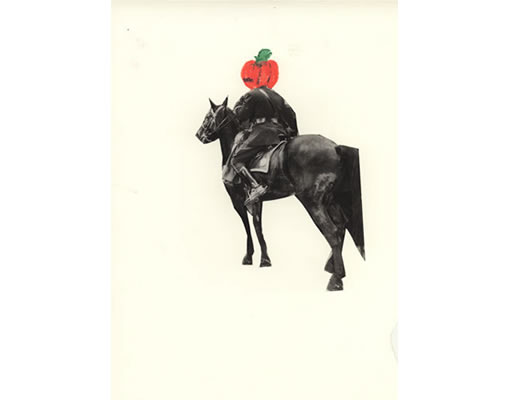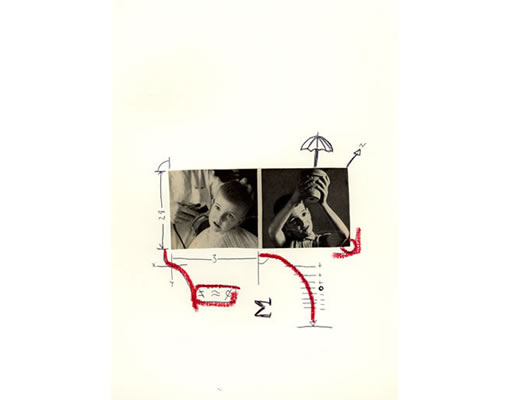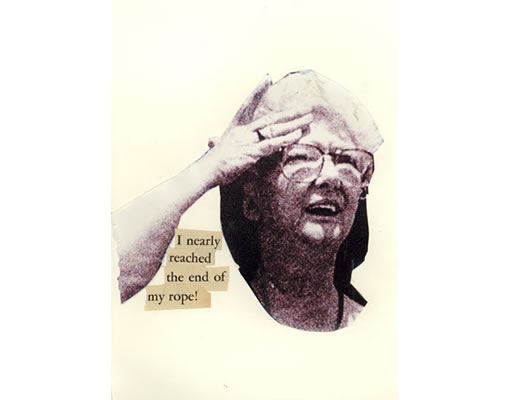Killing, riding, II
We weren’t quite there yet but you knew to look behind us, and this seemed to matter. What did you see? Something pressed, is pressing, will not let comfort strip and enter us, bend us inward. Still, I took you forward and a leaning overtook me. Another kind of expectation. You said put it down and I did, but within moments I was not the same and you noticed, changed your mind, looked back and entered something I did not recognize, but made a name for, and forgot.

My family says
The hair beneath my fingernails is light is moist. Is squints to see it. Is I can’t find the beginning. The where. The first best and final thing. That hair is something more than me. Is wrecked, alone, forever. I cannot place it but I’ll try. I’ll be the sudden humor that tells us when to stop. I’ll be that spot just a small way farther up the trail where follow me stop. I’ll be remove your clothes and sit and point silently as your footprints sink in rising dust.

Sticky
Spill it swap it. Spill it make it sneaky. Spill it swing it easy. Grab one end and hand the rest around, stiff little flingers. Bored little nones. Spill them speak them. Open like it’s hard to hold it. But hold it. Hold no sliding, hold no slick or stiff. We’ll swap still, but slower. Less sneaky. That’s okay. We’ll ask again and have another chance, later, later. When there’s interest. When there’s something more to say. When there’s a knot to tie this no around.

We’ll start by trapping
The bee sting skipped by easily, or seemed to. So easy! It sounded just like a bee sting. That buzz that tickle. That torture. I was told to look away and sat there, perfect, perfect. I was exactly me, but better, and humming, a slightly more delicate thing. A whisper more or less, a lining up behind, a kind of safety. The bee sting was not disappointing but, was okay disappointing. It wasn’t what anyone thought about when we said “certainty,” or “names,” or “

Wicked toes
The sand is well, oh my, is clear. Is sees us through it. Is rakes over us. Is be in the beginning. This sand is bare is, bore is, is cannot crack or crease. Please within this. Please to something, not enough than, sander than, more sand etc. I’m down beneath it when a wood bump wakes me. My brother comes to me and asks then, sailing, about the sailing. He stays and then wood bumps back. It is a no-winder. A difficult language. An ask. An an. My brother sits. The wood bumps. I dive between them.

Wit, a sliver
I thought slapping my mother would work. Slap! Etc. (Things will fall from their place and sort themselves before me, become something like understanding, in an act, or else, will I become involved again, will I, will I, or will I have words to get involved? The meadow is lovely, she said, and she said, is your flower from it? And should I look to the tall grass, the seasons in their bicker, in their rhythmic snapping, or will bark replace my funny pink, my following, my second step?)

—Excerpted from a series of interconnected, seven line stories entitled “In This Alone Impulse.” Other pieces from this series can be found at elimae.com, and Can We Have Our Ball Back?
Shya Scanlon is at work on a novel about surveillance, weather, and the use of negative human emotions as a source of electricity, called In The Time of Useful Consciousness. He is an MFA candidate at Brown University.
James J. Williams is a recently un-pierced, un-homeless artist/curator. His retrospective, By Request, My Epitaph opens July 20 at Envoy in New York. His book, Sometimes Me and You will be published soon enough, and he is also the founder of the Thorstein Foundation.